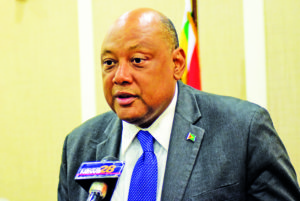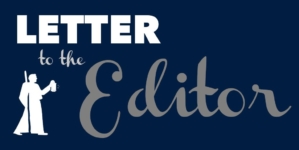We must all strongly press for formal dialogue between main political stakeholders
Dear Editor,
Recently, the AFC forcefully brought attention to the dire consequences of the political ethnicisation campaign that the Irfaan Ali-led administration has embarked on since August. There has been no let up, no pause, and no hesitation to demonstrate a dominance that is driven by a “winner-take-all” and “zero-sum” mentality. Daily, and almost by the hour, persons perceived to be supporters of the APNU+AFC are dismissed, harassed and threatened. Historic precepts like years of service, the public service, experience and competence are of little moment and importance. The question that is being asked is: what is the PPP’s motivation? Is it revenge, or removal of a threat, or something else? Whatever it is, apart from being dangerous to those being persecuted, it is assured of being mutually destructive.
If there is one thing the recent experiences have taught, it is that one government, or one party alone, cannot effectively rule Guyana. Once other groups, and their leaders, feel ostracised and left out, targeted and hounded, then governance will be a challenge and will grow increasingly difficult. No amount of money and goodwill, thrown at the problem, will bring relief, and in fact, the opposite is expected. If as Guyana’s economy rapidly expands thousands pour over our borders even as tens of thousands of supporters of the APNU and AFC continue to feel uninvited to participate, equally and unconditionally, as Guyanese, then the legitimacy that the PPP so desperately craves will remain a pipe dream. We are a people comprising several nations – living in a geographic space we call a country.
In truth, those of us living in Guyana, or living in similarly polarised countries, or have studied this phenomenon, know that at any given time one, and perhaps two of the several nations will not like another, accept another, or give the other, the legitimacy it needs and deserves to effectively govern. The PNC discovered this from 1966 to 1992, the PPP discovered this from 1992-2015, and the APNU+AFC discovered it from 2015-2020. It doesn’t matter how good and noble your intentions are, or how many kilometres of roads you have created or repaired, or houses built. What it comes down to is that a large section, almost half of the population, will not accept you, believe your motives to be sincere, or give you their trust. Winning razor-thin electoral majorities with cross-over votes will not cut it. Our constitutional framework does not allow for power-sharing and consociational government, but it does demand, in language only, that governance be inclusive. So there is a Presidency and government, but they represent, at best, at any given time, no more than 51% of the electorate. The other 49%-50% simply cannot be ignored, bullied or coerced or cajoled. We all know that our “democracy” will remain fractured, and unhealthy – operating way below optimum – for as long as we pretend otherwise.
Every President has sought to use his or her office to be a unifier, and it has not worked, but that does not mean that it cannot work. In simple terms, one cannot govern with a “winner take all” mind-set and constitution, while simultaneously, speaking about “inclusivity”. The two things are mutually exclusive – like oil and water.
In the recent past, we have had initiatives arising out of the Herdman-ston Accord, and the St. Lucia Statement, with Presidents Janet Jagan and Bharrat Jagdeo, along with then Opposition Leader, Desmond Hoyte, and later, a period of ‘Con-structive ‘Engagement’ between then President Jagdeo, and Leader of the Opposition, Robert Corbin. Most recently, following the 2015 elections, President David Granger and the Opposition Leader Bharrat Jagdeo met, following an invitation issued to the Leader of the Opposi-tion. The meeting was called to ostensibly agree on the establishment of Bi-partisan Committees to address issues that included: Border and Sovereignty, Agriculture, National Budget, National Unity and Security. In that meeting, Mr. Jagdeo intimated that he needed to consult with the executive of his party before agreeing to anything, but stated then, his, and his party’s, unequivocal support for matters pertaining to the border and sovereignty. Afterwards, Ms. Gail Teixeira went on to be fully engaged by Foreign Minister Greenidge, but regrettably, there was no positive response on the other national issues raised by President Granger, and the rest, as they say, is history.
We have now come full circle, again, and now President Ali has issued an invitation to meet the former Presidents. At the outset, this has to be recognised as a good initiative – one however that presupposes that we are a normal functioning democracy. The travesty is that we are nowhere near normal. This idea of a gathering of former Presidents, by itself, is forward-looking and noble, but cannot come at the expense of genuine dialogue between government and opposition. There is a constitutionally elected Leader of the Opposition in Joseph Harmon, as was Bharrat Jagdeo in 2015, who cannot be ignored or bypassed.
In 1997 and after, the leaders of the parties met regularly; notwithstanding the fact that the PNC maintained an Election Petition that challenged the legitimacy of the Janet Jagan-led government. This pattern of engagement continued after the 2001 elections when several Bi-partisan Committees were formed, and again in 2006, when President Jagdeo invited the parliamentary opposition to discuss a national approach to critical issues. It was against this backdrop that President Granger invited Mr. Jagdeo, as Leader of the Opposition for talks about a bi-partisan approach to national issues. This was done in the face of the fact that the PPP had openly challenged the results of the 2015 election, denounced the legitimacy of the APNU+AFC government, and filed an Election Petition to have it removed from office. The invitation issued by President Granger did not set a condition precedent that his government had to firstly be recognised, and the PPP’s Election Petition withdrawn, before talks could ensue. This was also the case in 1997, 2001, 2006, and 2011. It shouldn’t, therefore, be any different now.
So while we mull whether former President Granger should attend the historic conclave or not, we must all strongly press for the opening of formal dialogue between the main
political stakeholders that comprise the 12th Parliament of the Cooperative Republic of Guyana. This dialogue must not have pre-conditions set; except that they be entered into with goodwill, and must not take place only at times when the constitution mandates consultation. As an aside it must be stated that comments about there being no “honest interlocutor”, with whom to have discourse, are disingenuous and divisive. It is well known that the major parties have always regarded each other with great distrust and dislike, and at times, disdain, but this has not, and should never, be a fetter on dialogue. On the contrary, this is all the more reason why dialogue and discussions should ensue; even if we have to have a mediator as before.
It is necessary to repeat and underscore the obvious that the difference between the two Leviathans is razor-thin, which means, that no side has a clear and commanding mandate to govern for all. This reality has not changed in over fifty years and is highly unlikely to, in the next five.
There is too much at stake nationally to forsake this national imperative of engagement soonest.
Yours faithfully,
Raphael Trotman






















